Words MAXMILIAN WECHSLER
FRESH from a five-year posting in Sao Paulo, Brazil, the British Embassy’s new Commercial Counselor and Director of Trade and Investment in Thailand Richard Porter talks exclusively to The BigChilli about his numerous responsibilities – from encouraging British companies to come here and bolstering intellectual property rights to promoting the benefits and opportunities arising from Brexit.
“I visited Thailand for the frst time in 2006 and came back in 2012, both times for vacation. I arrived here for the third time in the latter part of July this year. It took me a week to settle down and then it was straight to work. The first couple of weeks I was occupied with meeting with my colleagues at the embassy, and in the next couple of weeks, I met with members of the embassy’s trade and investment team, which consists of 12 people, eight Thais two Brits, a Lithuanian and a Malaysian.
“I visited Thailand for the frst time in 2006 and came back in 2012, both times for vacation. I arrived here for the third time in the latter part of July this year. It took me a week to settle down and then it was straight to work. The first couple of weeks I was occupied with meeting with my colleagues at the embassy, and in the next couple of weeks, I met with members of the embassy’s trade and investment team, which consists of 12 people, eight Thais two Brits, a Lithuanian and a Malaysian.
“There is a wealth of experience, and everyone has an intimate understanding of the laws and regulations we are working under. Any companies that need assistance with regulatory issues will fnd this a fantastic team to work with. “I am rapidly getting an understanding of how things work here, the business culture, where the opportunities are and what we can do to help businesses. There is a great deal of affection between the Thai and UK business communities and a strong will to expand economic relations and continue to work together for the benefit of both countries.”
There are lots of similarities between Thailand and Brazil, noted Mr Porter. ‘‘In both countries, the people are friendly, kind and welcoming. The cultures are very similar as well. The industries in which Thais and Brazilians are interested in are very much the same, and as in Brazil, I feel the real warmth from the business community here.” One difference is security. “It is nice to be in a place where you can use your mobile phone on the street,” he quipped.
There are lots of similarities between Thailand and Brazil, noted Mr Porter. ‘‘In both countries, the people are friendly, kind and welcoming. The cultures are very similar as well. The industries in which Thais and Brazilians are interested in are very much the same, and as in Brazil, I feel the real warmth from the business community here.” One difference is security. “It is nice to be in a place where you can use your mobile phone on the street,” he quipped.
| Assignment in Thailand Mr Porter said that simply put his job in Thailand comes down to three things: “First, to encourage and assist new British companies wishing to come to Thailand. This includes fnding opportunities and partners for them; second, to help British companies that are already here to do more for example, to sell more products and more services; and third, to fnd opportunities for Thai individuals or companies wishing to invest in the UK. “Since taking up my job here, I have been out to meet with a lot of Thai company representatives. The team at the embassy has some amazing contacts, and they have been able to help lots of British companies in different sectors in recent years. I am now meeting with these contacts. “An important part of our job is to understand and assist the great ambition of the Thai government and the Thai people to move towards a digital economy. We are working very closely with the Thai government to realize the goals of Thailand 4.0 and the Eastern Economic Corridor.” Mr Porter said the length of his assignment is four years, and the primary focus of his team is in Thailand. “My government has people like me in every ASEAN country. We communicate with each other, for instance in monthly conference calls where we can catch up with what’s happening around the region. We also hold discussions about which ASEAN country would be the best ft for a British company wanting to expand to this part of the world. For example, if a UK company comes to us and asks for information about Thailand, we might also look at whether it might be a better idea for them to go to Malaysia or Singapore. | “There are 12 members of my team, including myself. One of the main sectors we cover is tech that’s anything related to the digital economy and could be satellites, IT equipment, and so on. We have lots of innovative start-ups and tech incubators in the UK coming up with new ideas for business, tourism and leisure. We are looking into ways in which we can bring this kind of innovative space to Thailand. There is an emerging start-up tech industry here as well, and we are keen to match Thai and UK expertise to benefit countries. “The education sector is also a very big thrust and not just English language training. This includes vocational training as well, providing courses for people who want to improve their job skills and employment possibilities. Another very strong focus is food and beverage. “The great thing about being in Thailand is that we have an ambassador who is interested in trade and investment issues. He gives me lots of guidance and support. He has great contacts, ideas and energy. It is good to work for someone who has such great interest in the area in which you work.” |
Current trade
Mr Porter said there are up to 1,000 British companies operating in Thailand in some shape or form. “We have a very strong British Chamber of Commerce here. They have over 600 members, and they have been established for a very long time, over half a century. They are the ones who help with first inquiries when a company wants to know what they can do in Thailand. “We are trying to persuade the Thai government that further opening up the economy to companies from overseas will be of benef t to the country. For example, it will help drive up the quality of services, reduce prices and increase competition.”
Mr Porter said his team is actively working to bolster intellectual property rights in Thailand. “British companies are developing new products, and in particular new pharmaceuticals, that need protection. The average waiting time at this moment to receive protection in Thailand is about 12 years. This is difficult if you are an innovative company trying to produce new products because it restricts your ability to introduce them to the market. We are working with the Thai government to see if there’s a way we can help clear the backlog so products like new drugs can be protected much more quickly.
“Every country imposes its bureaucracy, and one of the reasons we are here is to help people navigate that bureaucracy. When there are issues regarding market access we have a team in place to lobby the government and make it much easier for British companies to work here.”
Mr Porter said there are up to 1,000 British companies operating in Thailand in some shape or form. “We have a very strong British Chamber of Commerce here. They have over 600 members, and they have been established for a very long time, over half a century. They are the ones who help with first inquiries when a company wants to know what they can do in Thailand. “We are trying to persuade the Thai government that further opening up the economy to companies from overseas will be of benef t to the country. For example, it will help drive up the quality of services, reduce prices and increase competition.”
Mr Porter said his team is actively working to bolster intellectual property rights in Thailand. “British companies are developing new products, and in particular new pharmaceuticals, that need protection. The average waiting time at this moment to receive protection in Thailand is about 12 years. This is difficult if you are an innovative company trying to produce new products because it restricts your ability to introduce them to the market. We are working with the Thai government to see if there’s a way we can help clear the backlog so products like new drugs can be protected much more quickly.
“Every country imposes its bureaucracy, and one of the reasons we are here is to help people navigate that bureaucracy. When there are issues regarding market access we have a team in place to lobby the government and make it much easier for British companies to work here.”
Brexit
“As everyone knows, as a result of the Brexit vote England is leaving the European Union in 2019. We are very much concentrating on the benefits this brings. Among these is that we will fnally be free to negotiate directly with Thailand. In time we also want to negotiate some trade agreement with Thailand. This will be a priority, but it will likely take many years. So in the meantime, we are very keen to look at sector specific agreements, for example on the export and import of liqueur, which will beneft both countries.
“There’s no reason why we can’t start forming such bilateral agreements now, and we hope they will eventually lay the groundwork for the comprehensive trade agreements of the future.
“Last year we established the Thai-UK Business Leadership Council, represented by ten top Thai companies and ten top UK companies. Led by the chairman of PTT on the Thai side and the chairman of Tesco Lotus on the British side, the council is looking at a number of issues that affect business between our two countries.”
A proftable voyage
“Commercial relations between Siam/Thailand and the UK go back about 400 years, to 1610, when the directors of the East India Company sent a ship around the globe to the Kingdom of Siam with a letter from King James I to the King of Siam. In the letter, the English King declared his desire to build a strong relationship between our two countries.
“About 162 years ago Great Britain and Siam signed the Bowring Treaty. The treaty essentially established diplomatic relations between the two countries, and it was also one of the frst bilateral trade agreements ever signed. It allowed British companies to come to Siam and to sell their goods. The tariff on all goods was 3%, with the exception of opium, which had no tariff. The treaty opened up not only Siam for British trading ships but the whole of Southeast Asia as well.
“In those days the UK was exporting to Siam raw minerals, steel, copper, some meats and drinks, and some products for heavy industry including coal. The trade was one-sided, however. British people had freedom of movement, and they were allowed to live and trade here. The reverse wasn’t true for some time.
“Back then it took 122 days for goods shipped from Great Britain to reach Siam. Our ships had to sail around the Cape of Good Hope and the tip of southern Africa, one
of the most treacherous lanes in the world. Many ships sank in bad weather, and communications were conducted via handwritten letters,” said Mr Porter.
He added that the strong relationship between Thailand and Great Britain had been cemented by the fact that both are constitutional monarchies. “In both countries, there is a very strong affection for our royal leaders, and this is something that has endured throughout the years.” Mr Porter said in closing the interview: “It is nice to wake up every morning and do a job you love. It is an enormous privilege to represent my country in such a wonderful country with so many opportunities for British companies.”
“As everyone knows, as a result of the Brexit vote England is leaving the European Union in 2019. We are very much concentrating on the benefits this brings. Among these is that we will fnally be free to negotiate directly with Thailand. In time we also want to negotiate some trade agreement with Thailand. This will be a priority, but it will likely take many years. So in the meantime, we are very keen to look at sector specific agreements, for example on the export and import of liqueur, which will beneft both countries.
“There’s no reason why we can’t start forming such bilateral agreements now, and we hope they will eventually lay the groundwork for the comprehensive trade agreements of the future.
“Last year we established the Thai-UK Business Leadership Council, represented by ten top Thai companies and ten top UK companies. Led by the chairman of PTT on the Thai side and the chairman of Tesco Lotus on the British side, the council is looking at a number of issues that affect business between our two countries.”
A proftable voyage
“Commercial relations between Siam/Thailand and the UK go back about 400 years, to 1610, when the directors of the East India Company sent a ship around the globe to the Kingdom of Siam with a letter from King James I to the King of Siam. In the letter, the English King declared his desire to build a strong relationship between our two countries.
“About 162 years ago Great Britain and Siam signed the Bowring Treaty. The treaty essentially established diplomatic relations between the two countries, and it was also one of the frst bilateral trade agreements ever signed. It allowed British companies to come to Siam and to sell their goods. The tariff on all goods was 3%, with the exception of opium, which had no tariff. The treaty opened up not only Siam for British trading ships but the whole of Southeast Asia as well.
“In those days the UK was exporting to Siam raw minerals, steel, copper, some meats and drinks, and some products for heavy industry including coal. The trade was one-sided, however. British people had freedom of movement, and they were allowed to live and trade here. The reverse wasn’t true for some time.
“Back then it took 122 days for goods shipped from Great Britain to reach Siam. Our ships had to sail around the Cape of Good Hope and the tip of southern Africa, one
of the most treacherous lanes in the world. Many ships sank in bad weather, and communications were conducted via handwritten letters,” said Mr Porter.
He added that the strong relationship between Thailand and Great Britain had been cemented by the fact that both are constitutional monarchies. “In both countries, there is a very strong affection for our royal leaders, and this is something that has endured throughout the years.” Mr Porter said in closing the interview: “It is nice to wake up every morning and do a job you love. It is an enormous privilege to represent my country in such a wonderful country with so many opportunities for British companies.”
State of the Thai-British union
Richard Porter’s summary of key trade, investment and commercial opportunities:
| Bilateral trade The United Kingdom’s total exports to Thailand were £1.9 billion in 2015 (latest figures available), an 8% decline in our exports in 2014. The rate of decline has lessened since 2014 (a 22% drop). The UK’s total imports from Thailand account for £3.5 billion, a 5% increase from 2014. The main UK exports are machinery equipment and metals. The collapse of Sahaviriya Steel Industry (SSI) UK (which owned the Redcar steel works) hit exports. At its peak (2011-2012), SSI UK accounted for nearly 30% of UK exports to Thailand. However, UK market share of goods imports to Thailand increased from 1.2% in 2014 to 1.3% in 2015, less than half of the German total but marginally larger than France and Italy. The main Thai exports to the UK are frozen seafood and agricultural products. Investment The UK is one of the leading European investors in Thailand with more than £9 billion invested by Thai investors. UK investors include Tesco (their largest overseas operation Tesco Lotus has 1,700 stores and an online service), HSBC, Standard Chartered (which acquired a local bank in 1997), Triumph Motorcycles (operating five factories) and Prudential Finance, which has been operating in Thailand for over 20 years. Boots has expanded in Thailand to over 300 stores and is enjoying the tourist boom. Unilever Thailand employs more than 2,000 people and has been in Thailand since 1932. GlaxoSmithKline has been operating in Thailand since 1964 and now has around 400 employees. Rolls Royce has traded in Thailand for over 50 years with an in-country presence since 1989. Thai investment in the UK is also on the increase. Investors include Thai Union Frozen Products (acquired John West); Thai Bev (own five whisky distilleries and substantial hotel and real estate assets); and the agricultural giant, CP Group, which undertook a £4million expansion of their Newmarket factory (creating 100 new jobs) in 2013. Leading Thai families own residential and commercial property in the UK, especially in London. Thais love football and currently own Leicester City, Sheffield Wednesday, and Reading FC. Siam Cement Group (SCG) is the second largest private funder of physical science research at Oxford University after Rolls Royce. The Thai national oil company, PTT, opened a trading office in London in 2016. |
Free trade arrangements
Thailand sees an opportunity to promote trade with the UK following Brexit. Thailand-EU FTA talks have been frozen by the European Commission since the coup. The main Thai concerns post-Brexit will be quotas/tariffs on poultry and seafood exports to the UK, and immigration rules for senior Thai executives posted to the UK, researchers, and Thai chefs.
Thais are open to a bilateral FTA with the UK, but believe a faster and more productive course might be a series of “sectoral strategic partnerships”. These could initially cover sectors of UK strength such as education, aerospace, and the digital economy. There are some barriers to accessing the Thai market. The Thai
Foreign Business Act (FBA) of 1999 outlaws foreign investment in sectors considered strategic to the country. It also limits foreign ownership to 49% in much of the service sector. One hundred percent ownership is permitted in manufacturing as long as it is registered through the Thai Board of Investment.
Transport and infrastructure
Thailand plans to invest nearly £41 billion by 2022 in major infrastructure projects to promote Thailand as an ASEAN hub and to boost connectivity within the region. Projects to be implemented include upgrade of the national rail network, including double tracking; expansion of the Bangkok mass-transit system; airport and port expansion projects.
The primary contracts for these projects will be won by major Thai companies, and some (e.g. railways) will be tied to sof loans from China and Japan. But there are real opportunities for UK companies involved in project management, consulting engineering, design, operation and niche opportunities. UK companies, including Arup and Mott MacDonald, are successfully winning business in Thailand’s infrastructure sector.
Digital economy
Digital penetration is on the rise in Thailand, especially through mobile phones (94 million subscriptions for a population of 67million). Twenty-six million Thais access the internet, of which 18 million use social media (Facebook is the preferred platform). Four-G licences were auctioned at the end of 2015 afer a delay of over a year due to the political turbulence. TV is going digital. The Thai government is keen to learn how the UK has developed its digital economy.
Emerging opportunities for UK companies are in the following areas: smart city technologies; data centres; big data analytics; e-commerce related technologies; financial technology; verification systems to identify individuals online; and cyber security. A UK fintech company designed the recently introduced electronic transaction system for retail banks. Airbus/Surrey Satellites have a chance to win a major project to build small satellites for land planning/flood defence.
Education and vocational skills
Thais have deep respect for UK education, and there is a strong demand in Thailand for employees with good quality English language skills. There is an urgent push by the Ministry of Education to train Thai English language teachers. The British Council is the partner of choice.
Thailand also faces a vocational skills shortage, but there is less clarity about how this will be addressed systematically. Opportunities for UK companies include English language provision, education products and services, private schools and vocational training.
Engineering
The Thai manufacturing sector accounts for almost 40% of Thailand’s GDP (automotive industries (9th largest in the world), petrochemicals and value-added food products). UK companies including GKN, Triumph and Lucy Switchgear have done well in Thailand.
Pharmaceutical and healthcare
Thailand’s healthcare and pharmaceutical sector continues to grow. Thailand is a leading medical tourism hub, offering world class medical infrastructure and the highest possible quality of care at a fraction of the cost of similar procedures in developed countries. Thailand imports 70% of medical devices from overseas. GSK, Reckitt Benckiser and Astra Zeneca are all well-established UK companies offering medical equipment and devices, specialist treatment/technology, hospital standard certification, diagnostic equipment, e-health and elderly care equipment/technology and career training.
Retail, consumer goods, food and drink
Thailand, and especially Bangkok, is witnessing a step-change in high-end retail. UK brands are widely accepted by Thai consumers who have a strong affinity with quality imported products. In addition to high-end fashion (Paul Smith, Stella McCartney), Thai malls are home to a growing number of leading British brands including Top Shop, Top Man and Dorothy Perkins.
Opportunities for UK companies include new British brands (franchise or direct entry), clothing, footwear, and personal care, including cosmetics and gifware. With a rapidly growing tourism sector (20% per annum) and increasing international tastes, Thailand offers significant opportunities for UK companies in the food and beverage sector.
Thailand sees an opportunity to promote trade with the UK following Brexit. Thailand-EU FTA talks have been frozen by the European Commission since the coup. The main Thai concerns post-Brexit will be quotas/tariffs on poultry and seafood exports to the UK, and immigration rules for senior Thai executives posted to the UK, researchers, and Thai chefs.
Thais are open to a bilateral FTA with the UK, but believe a faster and more productive course might be a series of “sectoral strategic partnerships”. These could initially cover sectors of UK strength such as education, aerospace, and the digital economy. There are some barriers to accessing the Thai market. The Thai
Foreign Business Act (FBA) of 1999 outlaws foreign investment in sectors considered strategic to the country. It also limits foreign ownership to 49% in much of the service sector. One hundred percent ownership is permitted in manufacturing as long as it is registered through the Thai Board of Investment.
Transport and infrastructure
Thailand plans to invest nearly £41 billion by 2022 in major infrastructure projects to promote Thailand as an ASEAN hub and to boost connectivity within the region. Projects to be implemented include upgrade of the national rail network, including double tracking; expansion of the Bangkok mass-transit system; airport and port expansion projects.
The primary contracts for these projects will be won by major Thai companies, and some (e.g. railways) will be tied to sof loans from China and Japan. But there are real opportunities for UK companies involved in project management, consulting engineering, design, operation and niche opportunities. UK companies, including Arup and Mott MacDonald, are successfully winning business in Thailand’s infrastructure sector.
Digital economy
Digital penetration is on the rise in Thailand, especially through mobile phones (94 million subscriptions for a population of 67million). Twenty-six million Thais access the internet, of which 18 million use social media (Facebook is the preferred platform). Four-G licences were auctioned at the end of 2015 afer a delay of over a year due to the political turbulence. TV is going digital. The Thai government is keen to learn how the UK has developed its digital economy.
Emerging opportunities for UK companies are in the following areas: smart city technologies; data centres; big data analytics; e-commerce related technologies; financial technology; verification systems to identify individuals online; and cyber security. A UK fintech company designed the recently introduced electronic transaction system for retail banks. Airbus/Surrey Satellites have a chance to win a major project to build small satellites for land planning/flood defence.
Education and vocational skills
Thais have deep respect for UK education, and there is a strong demand in Thailand for employees with good quality English language skills. There is an urgent push by the Ministry of Education to train Thai English language teachers. The British Council is the partner of choice.
Thailand also faces a vocational skills shortage, but there is less clarity about how this will be addressed systematically. Opportunities for UK companies include English language provision, education products and services, private schools and vocational training.
Engineering
The Thai manufacturing sector accounts for almost 40% of Thailand’s GDP (automotive industries (9th largest in the world), petrochemicals and value-added food products). UK companies including GKN, Triumph and Lucy Switchgear have done well in Thailand.
Pharmaceutical and healthcare
Thailand’s healthcare and pharmaceutical sector continues to grow. Thailand is a leading medical tourism hub, offering world class medical infrastructure and the highest possible quality of care at a fraction of the cost of similar procedures in developed countries. Thailand imports 70% of medical devices from overseas. GSK, Reckitt Benckiser and Astra Zeneca are all well-established UK companies offering medical equipment and devices, specialist treatment/technology, hospital standard certification, diagnostic equipment, e-health and elderly care equipment/technology and career training.
Retail, consumer goods, food and drink
Thailand, and especially Bangkok, is witnessing a step-change in high-end retail. UK brands are widely accepted by Thai consumers who have a strong affinity with quality imported products. In addition to high-end fashion (Paul Smith, Stella McCartney), Thai malls are home to a growing number of leading British brands including Top Shop, Top Man and Dorothy Perkins.
Opportunities for UK companies include new British brands (franchise or direct entry), clothing, footwear, and personal care, including cosmetics and gifware. With a rapidly growing tourism sector (20% per annum) and increasing international tastes, Thailand offers significant opportunities for UK companies in the food and beverage sector.
| CV of Richard Porter Qualifications • 2017: SOAS, MA Global Diplomacy (specialising in trade policy). • 2003-2005: University of Amsterdam: Certificate in Dutch language studies. • 1998-1999: King’s College London: Medical Ethics ‒ Postgraduate diploma. • 1990-1993: Chartered Insurance Institute (CII) - Insurance examinations. Work experience • 2016: First Secretary, Department of International Trade, São Paulo, Brazil. • 2008-2016: PA Consulting Group, principal consultant on assignment since 2010 with Healthcare UK and its predecessor organization. • 2012: Healthcare Specialist with UKTI and later with the British Consulate General, Sao Paulo. • 2008- 2010: PA Consulting Group, principal consultant. • 2002-2006: Elected councillor and executive member for London Borough of Southwark (Part- time role while working for the London Ambulance Service). • 1999-2008: London ambulance service NHS trust paramedic, duty officer and operations manager. • 1995-1998: Medical Defence Union, hospital liaison manager. • 1990-1995: Royal Sun Alliance and Commercial Union. Voluntary work • 2010: Magistrate, her Majesty’s Courts and tribunal service. On leave of absence since 2014. |

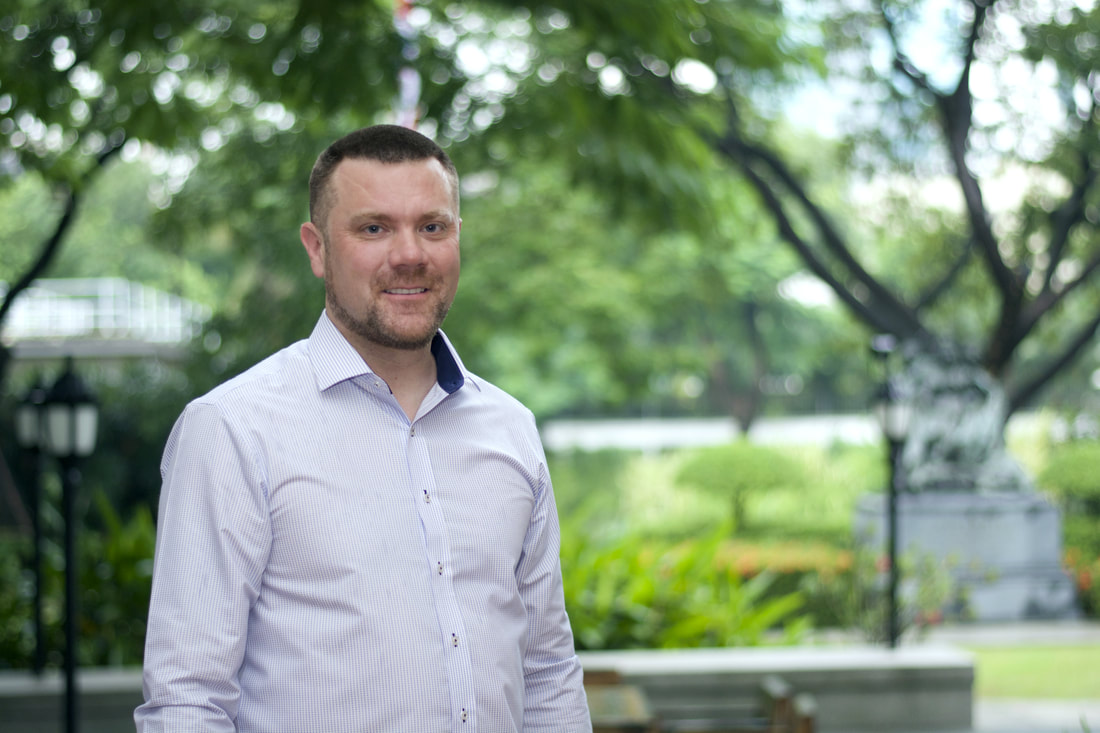
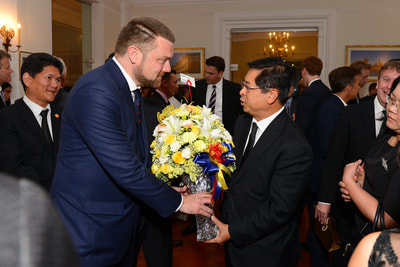
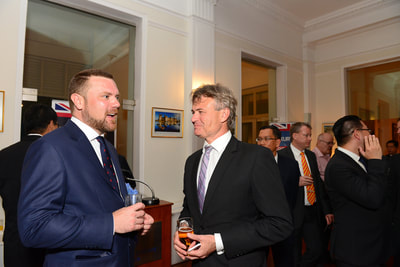
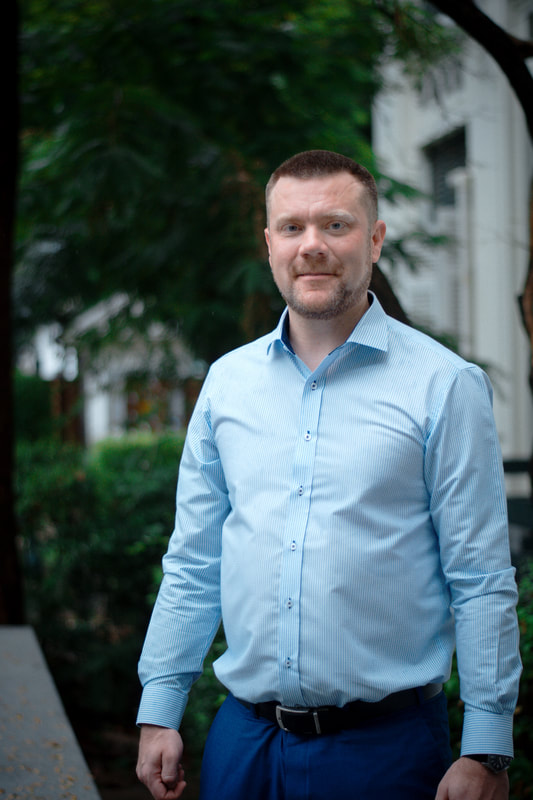
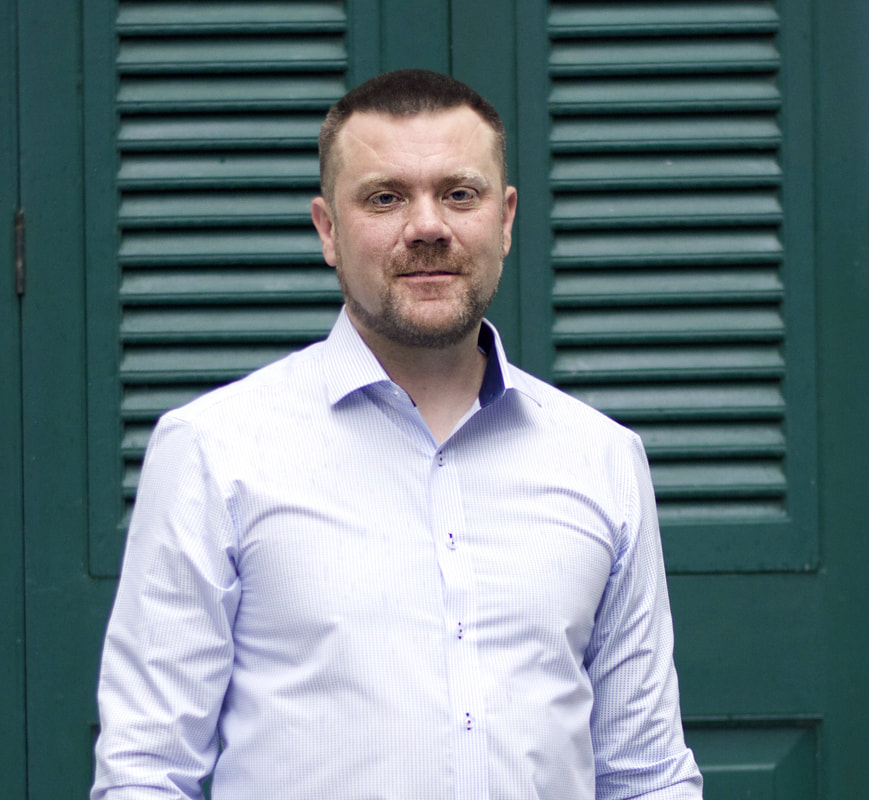
 RSS Feed
RSS Feed
















